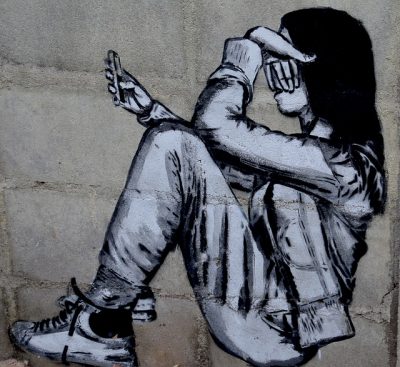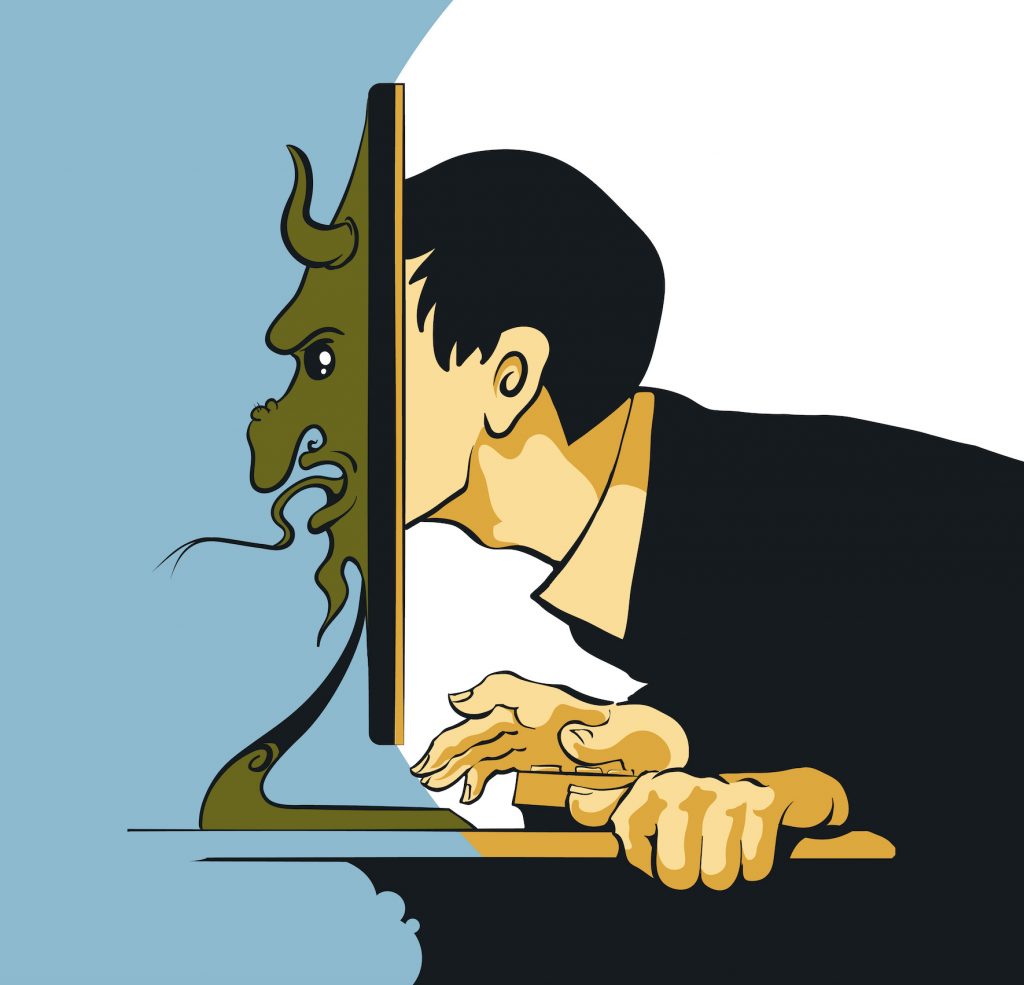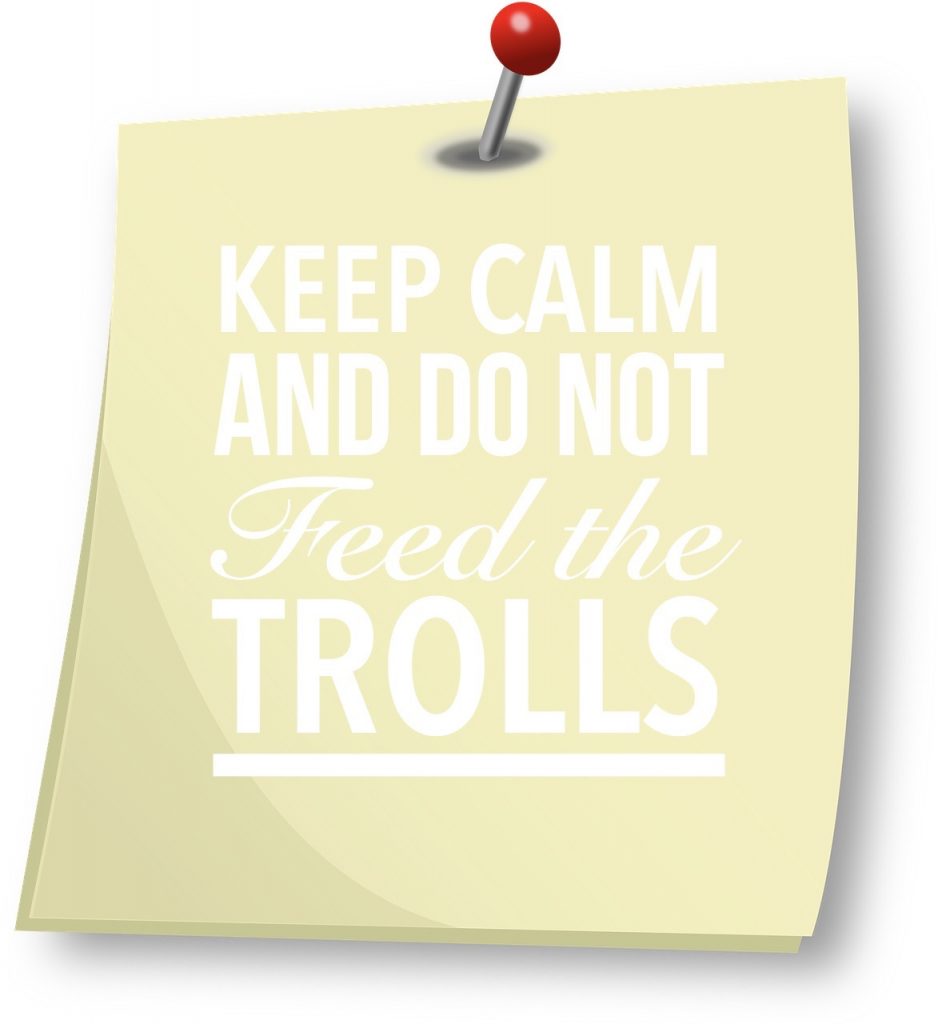
An Internet troll is a slag for a cyberbully. You do not need to be famous to attract trolls because a person trolled me. This incident brought back my memories of being bullied and the heart-wrenching feelings when I read about my son's experience after his death. In his own words.
I have minimal followers on social media. The few comments readers post are supporting. Readers share my writing is emotionally moving. They feel a connection to my stories. Some share their own stories. Others post, thanking me for telling my personal, heartbreaking, and poignant journey of losing my child. Through my writing, I put words to grief. They get to know my son, a wonderful person sharing all that is good in this world, bringing joy to those who knew him.
It was a message that caught me off guard, and my heart sank. I wanted it gone immediately off my computer screen.
On one occasion, when I was going through a particular social media account, the little speech-bubble icon located in the top right-hand corner was highlighted. “This is new,” I thought. I rolled my cursor over the top, not opening the message completely. I saw enough to understand this was a negative message. It was addressed to me using condescending descriptors. Words in the visible sentence contained symbols in place of letters with enough of the letters to know it was offensive. I was caught off guard and wanted it gone immediately. I right-clicked the mouse and hit delete before the message opened to my full view.

I barely know what it said, but it made my heart slump. In came the negative feelings. Why did this get to me? I am an adult who has experienced bullying before. What kind of person has no empathy for a parent grieving the loss of their child from a mental illness? People can be so harsh when fueled by anonymity. I shut my computer down and walk away, contemplating what to do.
Being passive-aggressive is in my nature. I want to stealth in and prevent the person from accessing my social media account.
I am from the Midwest and a Minnesotan, and we are known for avoiding confirmation. It is one of the behavioral traits common to life-long Minnesotans. Minnesotans are so well known for these traits; there is a name for them, Minnesota nice. Because of my passive-aggressive nature, I wanted to take revenge on this person by banning the writer from accessing what I post. Unfortunately, banning is not an option, and by deleting the message, I lost the opportunity to convey a response.
Later that week, I shared the incident at my next support group meeting. They are loss survivors, but many are friends. One astute friend said, “You have been trolled.” I had an idea of what he meant, but I looked it up to be sure. It is bad. Social media trolls are online bullies.
An internet troll is “a person who starts quarrels or upsets people on the Internet to distract and sow discord by posting inflammatory and digressive, extraneous, or off-topic messages with the intent of provoking readers into displaying emotional responses done for amusement or a specific gain,” (Wikipedia).
My friend went on, “Your blog got to someone. The person is negative because you touched an emotion.”
Their message was about themself and had nothing to do with me.
Most of my writing is about grief, loss, mental illness, and about my son. Perhaps they needed to lash out because they had an emotion they did not want to feel themselves, and what I wrote was bringing them closer to that feeling. It is a guessing game why they wrote those negative things to me. I like the angle my friend took. Their message was about themselves and had nothing to do with me.
Take a deep breath. Stay calm. Do not reply to an Internet troll.

Thankfully, I did the right thing by ignoring it. I went again to the Internet, and there is a lot written on how to respond to online bullies, primarity not to respond. Internet trolls are trying to spin up discord, so the first rule is to ignore them.
I am an adult and been through things, so I have thicker skin. How do our children handle being a victim of cyberbullying or any form of bullying?
More than 20 percent of high school students report being bullied in any given year. It leads to higher rates of depression and anxiety and contributes to suicides (NAMI.org).
NAMI.org (National Alliance on Mental Illness) shares a description of the forms of bullying, and it goes beyond physical. While growing up, a common saying was, “Sticks and stones may break my bones, but words will never heart me.” Well, words hurt, and from my experience, they hurt worse. Because of social media, negative comments, pictures, and posts can quickly explode on the internet. Bullying destroys self-esteem and can impact adulthood. It goes beyond the targeted person, to include those who witness the bullying acts.
I clearly remember my experience of being bullied and witnessing that towards my older brother. My family moved around a lot, so we were always the new kids, making us targets. The worse experience occurred while attending a Catholic school in a small Midwest town. The place you would least expect it. It continued for two years and left its mark on me.
Intentionally excluding someone from a group is a form of being bullied. My son wrote about his experience and the impact it had on his life.
My son wrote about his experience of being bullied while in junior high and early high school. I found a story on his computer after he died. It was a writing assignment for a college course. He wrote about a time in his life when he did not have any friends. There were many weekends where no classmates were available for socialization, he returning to school to hear about everyone else’s gatherings. The bullying he experienced came in the form of exclusion. Intentional exclusion gave the bullies power at the expense of my son. It is hard to remember that time, as before and after there were a lot of friends.
In his writing, he recalled the experiences with great detail and emotion, as if it recently happened. While reading it, I felt like I was experiencing it with him, my heartbreaking, having to pause to gain strength to keep reading.
As an adult, my son made it a point to be inclusive. He was accepting and non-judgmental, open to opinions and ideas — these traits carved from being bullied.
October is National Bullying Prevention Month. Add a post to raise awareness and put an end to bullying and cyberbullying!
By the way, I started writing this blog entry in September, but my delay to October appropriately aligns it with National Bullying Prevention Month.
Here is how you can help. You can participate in raising awareness to prevent bullying. In October, incorporate advocacy in your social media posts. Forgo sharing that perfect picture of your dinner and replace it with a campaign to end bullying. You can also donate to StompOutBullying.org a leading national bullying and cyberbullying prevention organization for kids and teens. You can find resources and inspiration on their site.

Leave A Comment